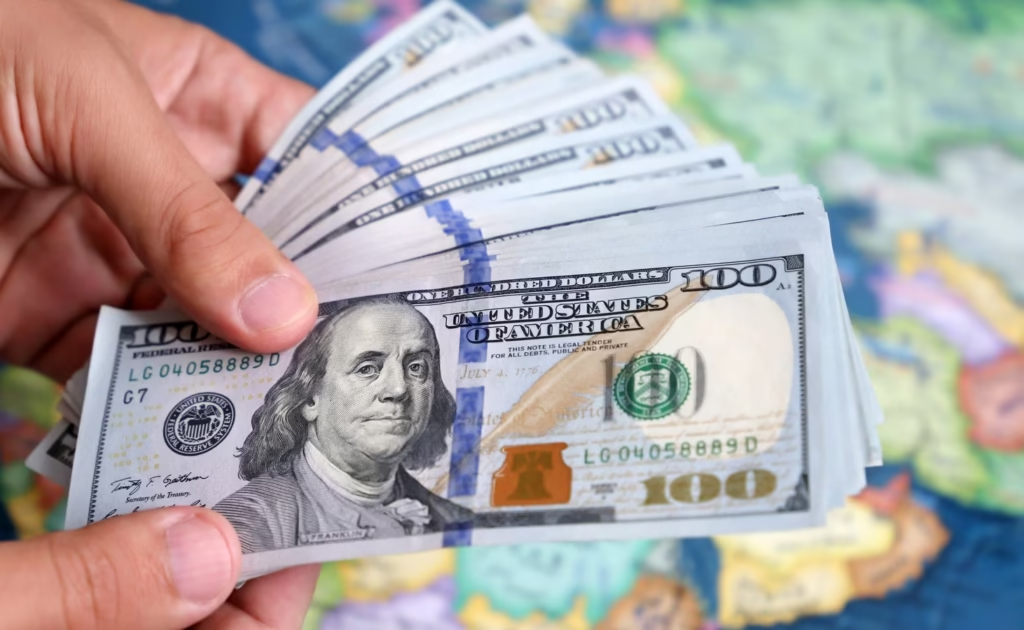Brokers and bootleggers are bringing as much as $5 million across the boundary day to day, as indicated by Muhammad Zafar Paracha, general secretary of the Trade Organizations Relationship of Pakistan, a 26-part group of cash sellers. That more than covers the as much as $17 million that Afghanistan’s national bank infuses into the market every week. The unlawful streams show how the Taliban are sidestepping sanctions after their 2021 takeover of the country. Latest news Pakistan, it’s adding to the consumption of unfamiliar holds and adding to the descending strain on the rupee as the cash tumbles to record lows and the economy wavers on the edge of breakdown. “Money is being snuck in, no doubt,” Paracha said by telephone. “This has become a seriously worthwhile business.”
At the point when the Taliban retook Kabul following twenty years in August 2021, the US and Europe obstructed more than $9 billion in Afghan national bank savings, dreading the assets would be involved by the aggressor bunch for psychological warfare. On strain from the Assembled Countries, the US consented to deliver half of it to help the economy, yet put this on pause after the Taliban disallowed Afghan ladies from going to the everyday schedule.
After seventeen months, Afghanistan stays in a desperate condition and the common freedoms circumstance is just deteriorating. The UN has cautioned that the greater part of the populace faces intense craving over the cruel winter. In any case, cash from its neighbour is assisting the system with scratching by. “Afghanistan has about a $10 to $15 million necessity consistently,” said Khurram Schehzad, CEO at Alpha Beta Center Arrangements Pvt Ltd., a monetary consultancy in Pakistan’s business capital, Karachi. A big part of this is assessed to come from Pakistan, he said.
Da Afghanistan Bank, the Taliban-run national bank, has an adequate number of dollars available for later to help the economy, said representative Haseeb Noori. Some of it comes from the UN, which has been giving about $40 million in philanthropic guide every week since the year before. As Afghanistan is cut off from the worldwide financial framework, the cash is moved in real money into Kabul, and should be changed over into afghani, the nearby cash, after it shows up. So despite the fact that the guide doesn’t straightforwardly help the Taliban, the dollars eventually end up in the national bank’s cash safes. The UN wasn’t quickly accessible to remark. Customs levies, some of which are gathered in dollars, are one more wellspring of assets for the system. “The UN really upholds the afghani money by providing dollars to the business sectors and purchasing afghanis in return,” said Torek Farhadi, a previous Global Financial Asset consultant in Washington. “Interest for afghani is really made by the UN and different sources including dollar dealers.”
The afghani has acquired around 5.6% against the greenback over the course of the last year through Monday, one of the most grounded exhibitions of any money on the planet. The Afghan money has recuperated to around 89.96 per dollar in the wake of hitting an unsurpassed low of 124.18 in December 2021, a couple of months after the Taliban got back to influence.
Pakistan’s rupee has lost around 37% against the US money over the period, perhaps of the biggest decay. It fell around 10% in one day in late January, the greatest drop in something like twenty years, as the emergency stricken government loosened up its hold over the swapping scale in a bid to win truly necessary credits from the IMF. Pakistan has been battling with the consequence of dangerous floods, seething expansion, political strife and unfamiliar stores that tumbled to $3.09 billion in the week finished Jan. 27, the least in nine years.
The pirating truly took off in the middle of last year after Afghanistan expanded coal commodities to eager for energy from Pakistan, as per authorities at Afghanistan’s money service. It has likewise been helped by the Taliban’s restriction on the utilisation of Pakistan’s rupee as lawful delicate in Afghanistan, which powers exporters to exchange dollars and take the US money back to the country, the authorities said, asking not to be distinguished in light of the fact that they aren’t approved to address media. “Our market will undoubtedly get impacted when they buy dollars from the nearby market,” Jameel Ahmad, legislative leader of Pakistan’s national bank, said in a concise meeting before a public interview on the nation’s loan fee choice on Jan. 23.
Haji Mohammad Rasool is one such merchant, trading coal to Pakistan. Coal is Afghanistan’s essential product and Pakistan is its greatest exchange accomplice. He purchases coal in afghani, sells it in rupee for a markup, changes over the rupee into dollars and sends them back to Afghanistan through the customary Hawala framework for moving assets. Finding dollars is troublesome in destitute Pakistan, Rasool says, so he involves dark business sectors close to the line in places like Peshawar, where he will pay as much as 10% more than the authority rate.
“Practically all merchants do likewise,” he said of bringing dollars into Afghanistan. We’re “disallowed by the Taliban from bringing rupees back into the country.” The Taliban urge everybody to get any measure of money in dollars, yet have cut the most extreme dollar move permitted out of the country by half to $5,000, said Ahmad Wali Haqmal, a representative for the money service.
For Paracha of the Pakistan money sellers’ gathering, the issue lies with Pakistan’s “defective” migration and exchange approaches and boundary controls. Huge number of individuals are crossing the boundary consistently without visas, he said. What’s more, a significant number of them are conveying dollars.

